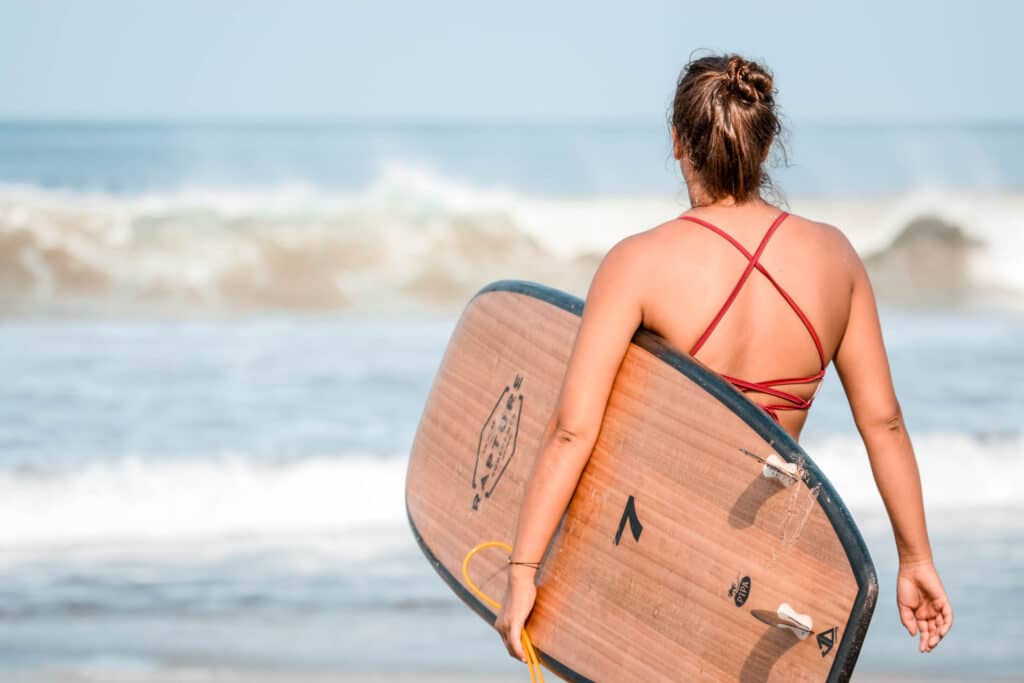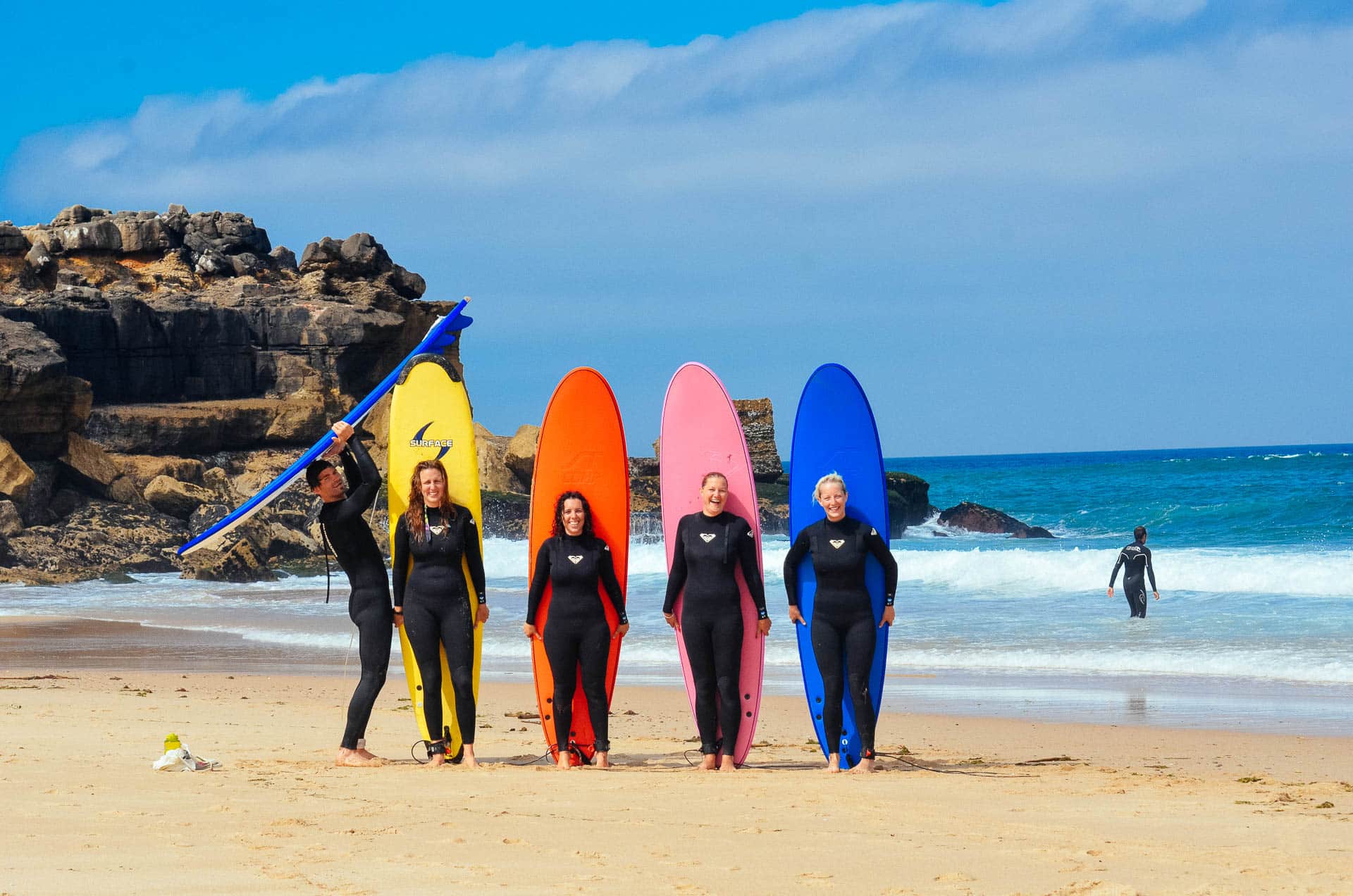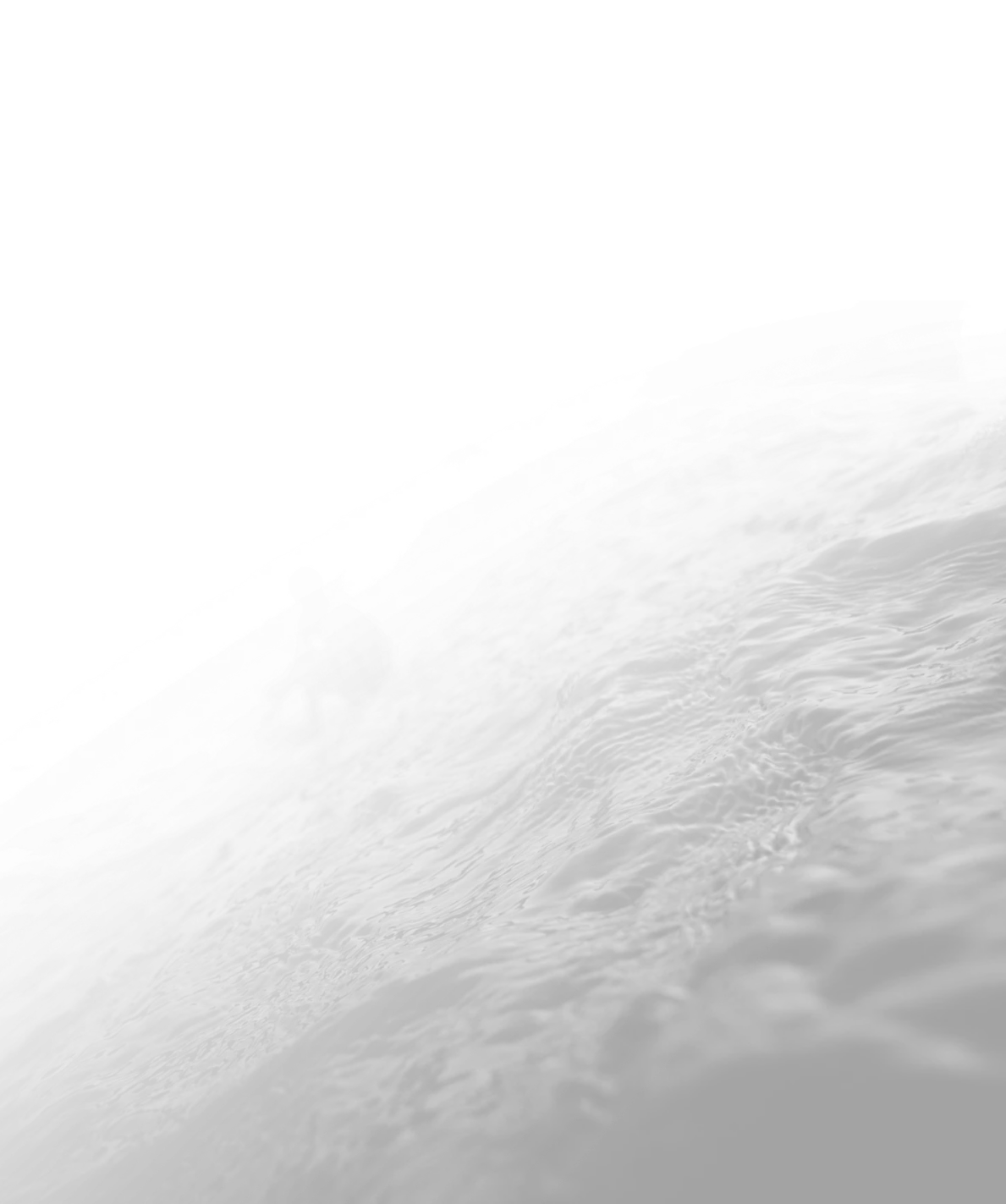Surfing is an exhilarating and rewarding sport that allows you to connect with the ocean and ride the waves. However, as a beginner surfer, it’s common to face a few challenges and make some surfing mistakes during the learning process.
Whether you’re standing on a surfboard for the first time or seeking to refine your skills, we aim to equip you with the knowledge, tips, and insights necessary to navigate the nuances of surfing, ensuring you progress confidently and safely.
We’ll learn about surf etiquette, understanding the right of way, waiting your turn, and respecting more experienced surfers. Beyond that, we’ll unlock the secrets of catching waves, perfecting your paddling technique, and timing your pop-up flawlessly. These are some common mistakes that you can address to empower you to ride waves with confidence, transforming the ocean into your playground.
1. Not Following Surf Etiquette and Surf Safety
Staying safe is paramount in surfing, especially for beginners. Surfing in unfamiliar waters or big waves can pose risks, and not being aware of surf safety guidelines can lead to dangerous situations.
One of the most crucial aspects of surf safety is recognising and respecting the power of the ocean. Many beginners may underestimate the force of breaking waves, leading to accidents and injuries.
As a beginner surfer, it’s essential to take surf lessons from a local surf school, like the one we have at Rapture Surf Camp. They can teach you valuable surf safety tips, such as how to read waves and identify potential dangers like rip currents and breaking waves.
Timing your paddle out and knowing when to duck dive or turtle roll can make a significant difference in your surf sessions. Surf etiquette also plays a vital role in ensuring a safe and enjoyable surfing experience for everyone in the water. Understanding the rules of the line-up, such as not dropping in on other surfers or giving right of way to the person closest to the peak, helps maintain harmony among surfers.For more experienced surfers, it’s essential to keep honing your surf safety skills and never become complacent. Even seasoned surfers can make mistakes, especially when attempting to ride bigger waves or in challenging conditions. Respecting your limits and knowing when it’s best to sit out a surf session can prevent accidents and potential dangers.
Rapture Surfcamps Reviews
2. Not Understanding the Waves
Learning to read the waves is a skill that all surfers, regardless of their level, should continuously develop. Knowing how waves break and anticipating their patterns can help you catch waves more effectively and position yourself correctly in the line-up.
For surfers who are just starting out, this skill can be especially challenging to grasp at first, but with time and practice, it becomes more intuitive. Understanding the different types of waves, such as beach breaks, point breaks, and reef breaks, and their characteristics will enhance your surfing experience and make you a more knowledgeable and confident surfer overall.
3. Not Practicing Board Control and Paddling
Board control and paddling are fundamental skills that both beginner and experienced surfers must master. For beginners, getting comfortable with their surfboard and understanding how it responds to their movements is crucial.
Many beginner surfers struggle with maintaining balance on their boards, leading to frequent falls and instability while catching waves.
To improve board control, beginners should practice popping up smoothly from the lying position to a stable standing position. This pop-up technique requires coordination and can be challenging at first, but with practice, it becomes more natural. Additionally, focusing on distributing their weight evenly and keeping their eyes on the horizon while riding a wave helps in maintaining balance and control.
Experienced surfers, on the other hand, may sometimes overlook the importance of consistent paddling techniques. Paddling efficiently is essential for catching waves and positioning oneself correctly in the line-up. Many experienced surfers make the mistake of using short, quick paddles that do not generate enough momentum to catch the wave.
To improve, it’s crucial to use long, powerful strokes that propel the board forward effectively. Maintaining a streamlined body position and engaging the core muscles during paddling can increase speed and efficiency. Paddling closer to the board’s rails, rather than in the middle, helps with stability and control. Even experienced surfers should continuously work on their paddling techniques to optimize their performance in the water.

4. Not Mastering Pop-up and Standing
The pop-up and standing are critical steps in a surfer’s journey, especially for surfers who are just starting to ride waves. The pop-up is the moment when a surfer transitions from lying flat on the board to standing upright while catching a wave. This is a common area where many beginners face challenges, often struggling with timing and coordination. To master the pop-up, beginner surfers should practice the motion on land to build muscle memory. Additionally, they can ask a surf instructor for guidance and feedback during surf sessions. Proper technique and timing are essential for a successful pop-up, enabling beginners to catch more waves and progress in their surfing abilities.
Standing on the surfboard is another crucial skill that all surfers, both beginners and experienced, should pay attention to. Proper standing posture helps maintain balance and control while riding waves.
Beginners should ensure they distribute their weight evenly, avoid putting too much weight on their back foot, and keep their knees slightly bent for stability. Many surfers, including the more experienced ones, can sometimes get lazy with their standing posture, leading to unstable rides and possible falls.
Maintaining an engaged core and actively adjusting weight distribution during the ride can greatly improve stability and make the surfing experience more enjoyable for all levels of surfers. Practicing the pop-up on land, seeking guidance from surf instructors, and focusing on proper standing posture are key to overcoming common mistakes and achieving better control and balance while surfing. Whether you are just starting or have years of experience, refining these fundamental skills will contribute to a safer, more enjoyable, and rewarding surfing experience on the waves.
5. Ignoring the Respect for Ocean
Knowing your limits is a vital aspect of safe surfing that both beginner surfers and experienced ones should prioritize. The thrill of catching waves and the excitement of riding them can sometimes lead to surfers pushing their boundaries, which can result in accidents or injuries.
Even for more experienced surfers, knowing when to stop is crucial to avoid taking unnecessary risks. Ocean conditions can change rapidly, and what might seem like a familiar surf spot can become challenging due to factors like rip tides or big ocean waves.
Before heading into the ocean, it’s essential to assess the conditions, consider your own skill level, and be honest about your abilities. While it’s exhilarating to ride bigger waves, doing so without adequate experience and preparation can be dangerous. Surfing within your limits not only ensures your safety but also helps build your confidence and ability over time.
By understanding your limits, you can enjoy surfing to the fullest while minimizing the risks and ensuring a positive and enjoyable surfing experience for yourself and others in the lineup.

Surfing is a fantastic and fun sport, but it comes with its challenges. By being aware of common mistakes and following the tips provided, you can overcome these challenges and progress in your surfing journey while you stay safe.
From mastering the elusive pop-up technique to understanding surf etiquette and more, we’ve explored the essential elements that will help you have a successful and enjoyable surfing experience.
Our dedicated community of experienced instructors is here to support you on this journey. We believe that with a passion for learning and a deep respect for the ocean, you can overcome any challenges you face as a surfer.
As you continue your surfing journey, remember that mistakes are a natural part of the learning process. Embrace them as opportunities for growth and improvement, for it is in these moments of challenge that true mastery is born.
Always prioritize surf safety, respect other surfers, and practice consistently to improve your skills. With time and dedication, you’ll become a confident and capable surfer, riding waves with fun and embracing the thrill of this incredible sport. Remember that the fun of surfing lies not just in conquering the waves, but in the camaraderie, respect, and connection shared among fellow surfers in the line up. Stay cool and happy surfing!
Learn the art of surfing and fine-tune your skills with our expert instructors at Rapture Surcamps. Whether you’re a beginner looking to catch your first wave or an experienced surfer seeking to refine your technique, our team is here to guide you every step of the way.
Unlock Your Surf Potential:
- Personalized Coaching: Receive tailored lessons to suit your skill level.
- Mistake-Fixing Workshops: Identify and overcome common surfing challenges.
- Pro Tips and Tricks: Get insider insights from our seasoned instructors.
Choose Your Surfing Paradise:
- Bali Surf Camp: Immerse yourself in the vibrant surf culture of Bali. Experience the thrill of riding Bali’s legendary waves while enjoying the breath-taking landscapes and rich cultural vibes.
- Portugal Surf Camp: Explore the Atlantic coastline of Portugal, where consistent waves and stunning beaches create the perfect backdrop for your surfing journey. Discover the laid-back charm of Portugal while honing your surfing skills.
Why Choose Rapture Surfcamps?
- Experienced Instructors: Learn from the best in the business.
- State-of-the-Art Facilities: Enjoy top-notch amenities and accommodations.
- Vibrant Surf Community: Connect with like-minded surf enthusiasts from around the globe.
Don’t miss your chance to catch the wave of a lifetime! Book your spot now!
FAQs
Beginners often struggle with paddle technique and body positioning. Ensure proper paddling form, and focus on keeping a low centre of gravity while riding to improve stability.
Timing is crucial. Ensure you’re paddling with the wave, not against it. Position yourself properly, and practice reading the waves to anticipate the right moment to catch them.
Weight distribution is key. Keep your weight centred and distribute it evenly on both feet. Avoid leaning too far forward or backward, and engage your core for better balance.
Fear is normal, but proper technique can help. Practice falling correctly, and learn to control your breath. Additionally, start with smaller waves and gradually progress to build confidence.
Efficient paddling is crucial. Use your arms and shoulders, not just your hands, and paddle with your whole body. Additionally, take short breaks between sets to conserve energy for the entire session.
Consult with experienced surf shop staff or instructors. Generally, beginners should start with longer, more stable boards, while more advanced surfers may prefer shorter, maneuverable boards based on their skill and the type of waves they’ll be riding.


